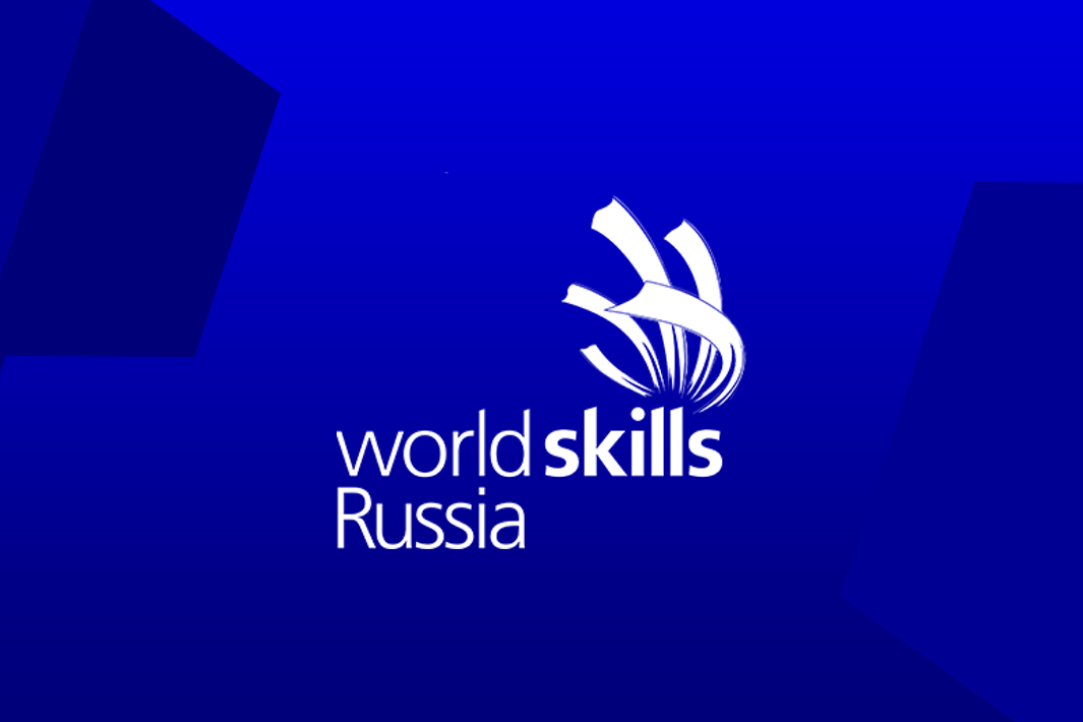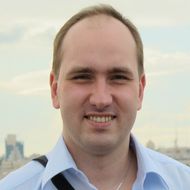MIEM, WorldSkills Russia, and Industrial Partners Hold International Corporate Security Training Modules and Competition

From June 22 to July 9, 2020, the 2020 International BRICS Future Skills Camp Championship, which allows students to both expand and test their skills in enterprise information systems security, took place. The event was jointly organized by WorldSkills Russia (WSR), the HSE Tikhonov Moscow Institute of Electronics and Mathematics (MIEM HSE), and Far Eastern Federal University (FEFU). Students from Brazil, Russia, India, China, and the Republic of South Africa participated in the competition.
Participants demonstrated their skills in using high-tech corporate information protection systems (DLP, VPN, IDS) and ensuring the security of modern digital infrastructures.
The international training modules, which were organized under Russia’s chairmanship of BRICS, underscore the importance of gaining new skills and promote cooperation between BRICS member countries in the field of vocational education. This year’s event also furthered the development of new formats of collaboration under external constraints. Such events, of course, contribute to the export of Russian expertise and solutions in the field of information protection, as well as advanced educational technologies. The event was held completely remotely, with experts and participants digitally attending from all over the world.
The event consisted of 2 parts:
- Intensive training modules led by experts from the InfoTeCS Academy, InfoWatch Group, and HSE MIEM in DLP and VPN technologies. Experts from the InfoTeCS Academy examined general issues, the current state and prospects of cryptography, and the principles of the development and administration of secure networks using ViPNet Network Security products. Specialists from InfoWatch Group demonstrated how anti-data leak technology works as well as methods for identifying insiders using the DLP InfoWatch Traffic Monitor.
- The Future Skills Challenge Mini-Championship, which was conducted in accordance with WorldSkills Russia’s methodology. In a simulation of a day on the job of a security officer or administrator, evaluators assessed participants’ training level and identified strong and weak performers.
Andrei Zarubin, InfoWatch Vice President in Science and Education, greeted the Future Skills Camp participants. ‘I am very pleased to welcome the participants of the competition and thank WorldSkills for the invitation. I really hope that you will enjoy what you learn today. And I hope that you will join the field of information security—a complex but exciting area of the digital sphere. We are continually working with experts in Russia to gather and expand competitive tasks for an adequate response to market challenges, and we are constantly improving tasks to meet the high requirements of the industry. On behalf of InfoWatch Group, I am ready to assure you that we plan to support pioneers in Asia by providing [...] the necessary software, documentation and training.’
The well-coordinated joint work of vendors, WSR, and universities made the event a success. WSR organized the overall framework of the event and invited experts. FEFU, as the largest Russian university in the Far East, recruited students from BRICS countries. MIEM HSE and vendors shared their knowledge and skills in operating complex information security systems.
‘Aggregation of real-world application practices and close contact with industrial partners is the basic principle of operation for MIEM in all sectors,’ says Anton Sergeev, Chief Expert for the Future Skills Camp, MIEM HSE advisor, and certified WSR expert.
Anton Sergeev, Chief Expert for the Future Skills Camp, MIEM HSE advisor, and certified WSR expert

‘Over the years, working closely with internal corporate security experts, the industry, and vendors, we have gained considerable expertise and experience in using modern information protection solutions. And we see it as our mission for the coming years to share advanced technologies, practices, and educational solutions with both the educational institutions of Russia as well as our partner countries. We are launching similar activities through the HSE International Centre of Research and Methodology. It is great to see that the export of Russian educational technologies is becoming a priority for various government agencies - we really have something to show.’
MIEM currently offers two programmes in information security as well as a joint programme with InfoWatch, where experts from the company participate in the curriculum and share their personal experience with students. In addition, students can learn about security solutions for the Internet of Things at hands-on work stations that have been installed in a MIEM classroom. MIEM HSE’s faculty includes 3 certified WSR corporate information security experts—more than any other Russian university.
For the Future Skills event, MIEM HSE provided its specialists and educational infrastructure. The training took place in the virtual room system (Jitsi) that MIEM uses for conducting remote classes for up to 50 people.

It is important to note the participation of students from FEFU’s Master’s Programme in BRICS Countries (2019-2020) in the Skills Camp for Enterprise Information Systems Security. For them, an international competition such as this was a logical conclusion to an intensive year of study, as it allowed them to compare their skills with those from other countries.
The Enterprise Information Systems Security Competition was created in 2017 as part of the FutureSkills initiative and aims to aggregate experience, methods, and best practices in corporate security and hold competitions among information security professionals in accordance with WorldSkills standards. Representatives of 24 regions of Russia and 6 countries participate in the competition. The preparation of the contestants and the holding of the championship is carried out by a joint team of experts from MIEM HSE, FEFU, Saint Petersburg State University of Aerospace Instrumentation, InfoWatch Group, InfoTeKS Academy, and Communication College No. 54 of Moscow.
It is expected that more than 180 competitors and more than 200 experts from Brazil, Russia, India, China, and South Africa will participate in all 17 skill competitions of the 2020 Future Skills Challenge, including Enterprise Information Systems Security, Internet of Things, Drone Operation, and more.
Comprehensive support for the event was provided by InfoWatch Group and InfoTeCS Academy, which are among the world’s leading producers of information security solutions.
See also:
HSE Scientists Create Imperceptible but Robust Digital Watermark
HSE scientists have developed an algorithm to protect digital images, significantly enhancing the security of multimedia data on the internet. The algorithm embeds watermarks into images; these watermarks are invisible to the human eye and capable of resisting various attacks. The results of the study have been published in Computers and Electrical Engineering.
Unprecedented Cyber Attacks: Information Security Comes First for the State and Business
Changes related to the pandemic and the sanctions regime have led to the restructuring of the Russian information industry and changes in the policy strategy of its participants. What are the main risks and how best to cope with these new challenges? These issues were discussed during the ‘Digital Transformation of Business in the New Post-crisis Reality’ master class, organized by HSE Department of the Theory and Practice of Business-Government Interaction.
Pivot to the East: A Comprehensive Study of the Cultural and Civilisational Centres of the Non-Western World is the Top Priority
China and the Chinese world, South Asia, Southeast Asia, the Arab countries, Iran, Turkey, Central Asia and Africa are gaining new significance in Russia’s foreign policy. However, we do not know enough about the Eastern countries. It is necessary to change the priorities in education, starting from grammar school. Prospects for the development of domestic Oriental studies in the context of the new stage in the development of the system of international relations were discussed at a round table at HSE University.
‘I Admire HSE Students’ Eagerness to Learn, to Discuss, to Broaden Their Perspectives’
Robert Romanowski was a ‘Digital Professor’ at HSE University in November 2021. In his interview for the HSE News Service, he talked about the specifics of online teaching, his course on Strategic Branding, and the skills that are essential for marketing professionals today.
Russia and Africa: Time to Expand Cooperation
There is major potential for economic and humanitarian cooperation between Russia and African countries. Particularly, Russian organisations and universities can help transfer competencies and knowledge in the fields of agriculture, energy, industrial production, environmental management, climate change, and public administration. Experts and representatives of African embassies in Russia discussed these issues at the round table ‘Russia-Africa Sharing Knowledge’ hosted by HSE University.
The Brain in Space: Investigating the Effects of Long Spaceflights on Space Travellers
As part of an international project conducted with the participation of Roscosmos and the European Space Agency, a team of researchers used differential tractography to analyse dMRI scans ofcosmonauts’ brains and found significant changes in brain connectivity, with some of the changes persisting after seven months back on Earth. The paper is published in Frontiers in Neural Circuits.
HSE University-Perm and the Training Centre of the Uzbek Ministry of Finance Sign Cooperation Agreement
HSE University in Perm has become the first academic partner of the Training Centre under the Ministry of Finance of the Republic of Uzbekistan. The parties have signed a cooperation agreement in education and research.
HSE University Strengthens Ties with Netherlands in Agricultural Research and Education
On November 9, 2021, HSE University signed a memorandum of understanding with Wageningen University & Research, a major university in the Netherlands and one of the leading agricultural research institutes in the world. Participants of the signing ceremony included HSE University Rector Nikita Anisimov, President of the Wageningen University & Research Executive Board Professor Louise Fresco, and Dutch Ambassador to Russia Gilles Beschoor Plug.
The Majority of Russians Do Not Support Microchip Implants
The majority of Russians would not agree to being fitted with microchip implants for any purposes—medical or otherwise. A joint study conducted by HSE University’s International Laboratory for Applied Network Research and Aventica found that respondents believe the risks of personal data leaks and misuse to be too high.
‘We Can Now Say That the Finance Conference Is Global’
The 10th International Moscow Finance Conference, organized by HSE ICEF, took place on October 29–30 online. Vladimir Sokolov, Head of the International Laboratory of Financial Economics, which hosted the conference, talks about the participants, the key presentation topics and how they will impact the global economy.


